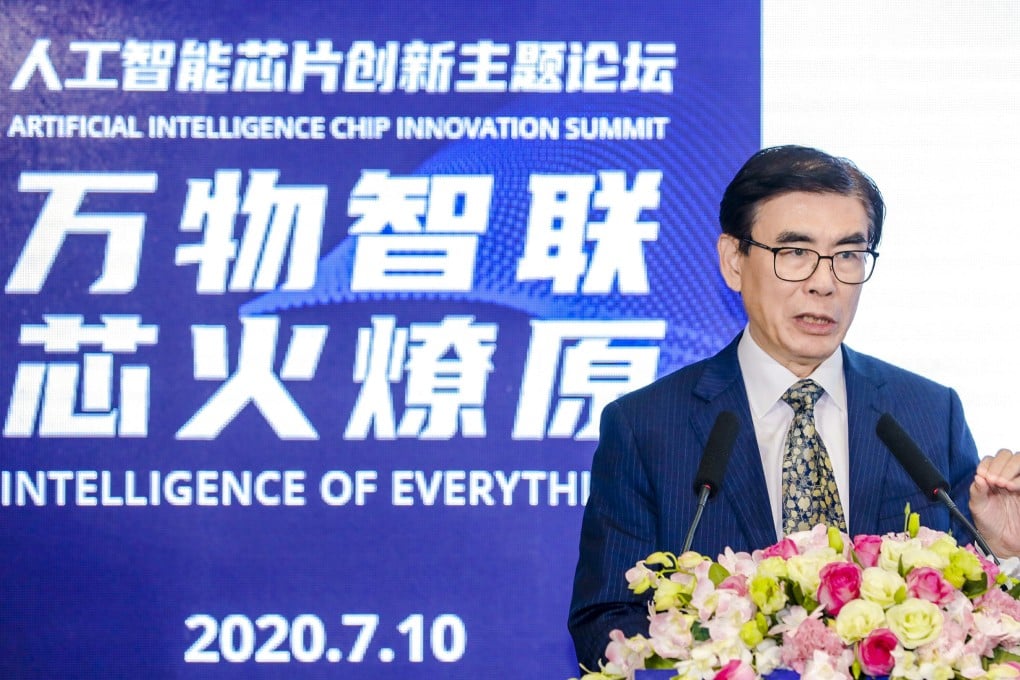China needs to foster ‘cooperation’ to break US tech restrictions, says leading chip expert
- China’s large domestic market has wooed legacy chip makers even though they are banned from exporting advanced chip technologies to China
- The share of locally made chips in China’s total chip sales increased from 13 per cent to 41.4 per cent between 2012 and 2022

China needs to increase “openness” and “cooperation” in its chip industry to overcome US tech restrictions and sanctions, a leading Chinese semiconductor industry expert said.
Wei Shaojun, director of the Institute of Microelectronics of Tsinghua University and an official at the China Semiconductor Industry Association, said that China has a number of favourable factors to help grow its chip industry despite disrupted supply chains, including its “super large” domestic market for chips and the inconsistent goals between politicians and businesses in the west.
“Our goal is to shatter the blockade and containment to achieve self-sufficiency, but it has to be noted that self-sufficiency doesn’t mean to close ourselves off [to the rest of the world],” Wei told an industry forum in Guangzhou on the weekend, according to the transcript of his speech published by the organiser.
Nvidia, which is banned from selling its most advanced chips to China under the stricter US export rules, has tailor-made chips for Chinese clients. ByteDance, the owner of TikTok, has reportedly ordered US$1 billion worth of Nvidia’s chips for use in artificial intelligence projects.
Wei said US sanctions as well as Covid-19 lockdowns have disrupted the semiconductor industry and that China is “facing serious challenges” in growing its own chip industry. Most recently, the Biden administration added another 31 Chinese companies to its export blacklist, while Japan's export control measures on 23 types of semiconductor manufacturing equipment will come into effect in July.
But Wei said that China can promote “openness” and “cooperation” among global semiconductor companies to achieve “re-globalisation”. “If the main feature of the global semiconductor supply chain in the past 20 years was ‘division of labour’, then ‘cooperation’ will be the key characteristic to promote re-globalisation,” he said.